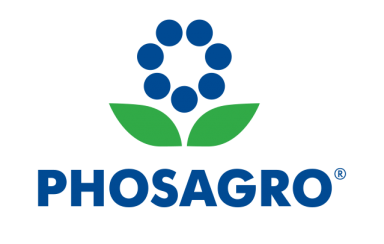PhosAgro’s products have earned an ‘Environmental Quality Label’ from the Brazilian Association of Technical Standards (ABNT).

PhosAgro’s products have earned an ‘Environmental Quality Label’ from the Brazilian Association of Technical Standards (ABNT).
PhosAgro’s Cherepovets, Volkhov and Balakovo production sites, as well as its phosphate extraction and enrichment site, in Kirovsk, have successfully passed an ABNT certification audit.
The audit of the Company’s production facilities was conducted as part of a joint project involving PhosAgro, the ABNT and the Ecological Union certification body. The goal of the project is the mutual recognition of ecolabels for mineral fertilizers and the creation of unified requirements for the market of both countries for environmentally preferable mineral fertilizers based on the current standard of the Vitality Leaf international system. As the Ecological Union and the ABNT are members of the Global Ecolabeling Network, the organisations can work together on common criteria.
In 2021, PhosAgro became the first company in the Russian mineral fertilizer industry to receive a certificate of compliance with the STO-56171713-023-2020 standard, developed by the Ecological Union and recognised by the Global Ecolabeling Network. In October 2022, the Company was inspected to verify the compliance of its products with the Ecological Union standard and to confirm its right to use the internationally recognized Vitality Leaf ecolabel.
“The economies of Russia and Brazil are part of a single agribusiness chain. We import 23% of all types of mineral fertilizers from Russia, which are critical for us as an agribusiness powerhouse. I would like to congratulate PhosAgro, one of the biggest players in the Brazilian market, which has become the first Russian fertilizer producer to receive the Brazilian ‘Environmental Quality Label’,” said Brazil’s Ambassador to Russia, Rodrigo de Lima Baena Soares.
"It is very important for ABNT to complete this cooperation project with the Ecological Union, a Russian environmental labelling organisation, as a result of which PhosAgro Group’s products exported to Brazil have been granted the ABNT ecolabel. The positive results achieved in the audit conducted by the Ecological Union, whose criteria were set jointly with the ABNT, enabled us to establish this process of mutually recognised certifications,” said Guy Ladvocat, Head of the ABNT’s Certification Department, on the results of PhosAgro’s certification audit.
“International recognition as a unique benefit of Russia’s Vitality Leaf ecolabel has been confirmed in practice. The ability to streamline the certification of products with Vitality Leaf in other international ecolabelling systems, such as the Brazilian system, helps exporting companies and simplifies the international trade in environmentally preferable products. We are pleased that PhosAgro’s environmental protection efforts are now recognised not only in Russia but also in the Brazilian market,” said Dr Yulia Gracheva, Director of the Ecological Union, a member of the Board of Directors of the Global Ecolabeling Network and head of the central authority of the Vitality Leaf environmental certification system.
“We are grateful to the experts from the ABNT and the Ecological Union for their work on harmonising the standards for enhanced products. This is an important step that will remove technical barriers to trade in environmentally safe products and boost bilateral trade between Russia and Brazil. Marking our products with the ABNT’s ‘Environmental Quality Label’ will give Brazilian producers the opportunity to make an informed choice in favour of environmentally preferable fertilizers whose quality is confirmed on a global scale,” said Mikhail Rybnikov, CEO of PhosAgro.
All PhosAgro industrial sites meet the latest and most stringent requirements of environmental laws. The environmental impact of PhosAgro’s plants – in terms of those variables that are currently tested – has decreased to the levels established by Russian and European directories of best available technologies. On this basis, PhosAgro plants can be classified as green, or environmentally safe, industries.
The Company has adopted a climate strategy that anticipates a 14% reduction in greenhouse gas emissions relative to the 2018 baseline for scopes 1–3 by 2028. Specific scope 1 greenhouse gas emissions already decreased by 16% between 2018 and 2021, while gross emissions fell by 4% over this period.
The company’s own electricity-generating facilities at its chemical plants operate to a large extent by recycling waste steam from the production of sulphuric acid. Waste steam is used to produce 46% of the electricity generated in Cherepovets and 97.5% of the electricity generated in Balakovo. In Volkhov, a similar power generation plant was launched as part of an investment project for the construction of a new plant, which will cover 95% of the site’s power generation needs.
A project on the use of renewable energy sources in industrial and social facilities is being implemented. PhosAgro is actively increasing the share of green energy in its energy consumption. Over the past two years, about 20% of the products from the company’s mining and processing site were produced using energy from a hydroelectric power plant.
Subscribe to our newsletter & stay updated.